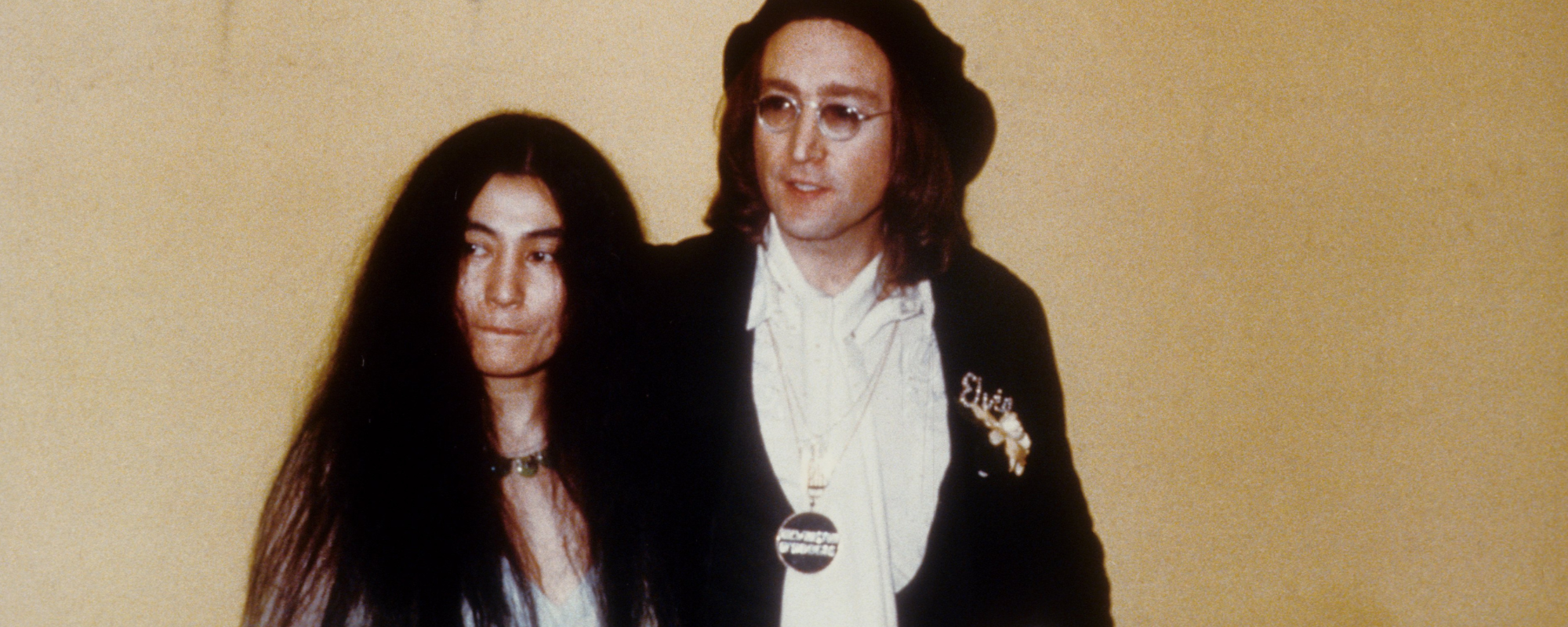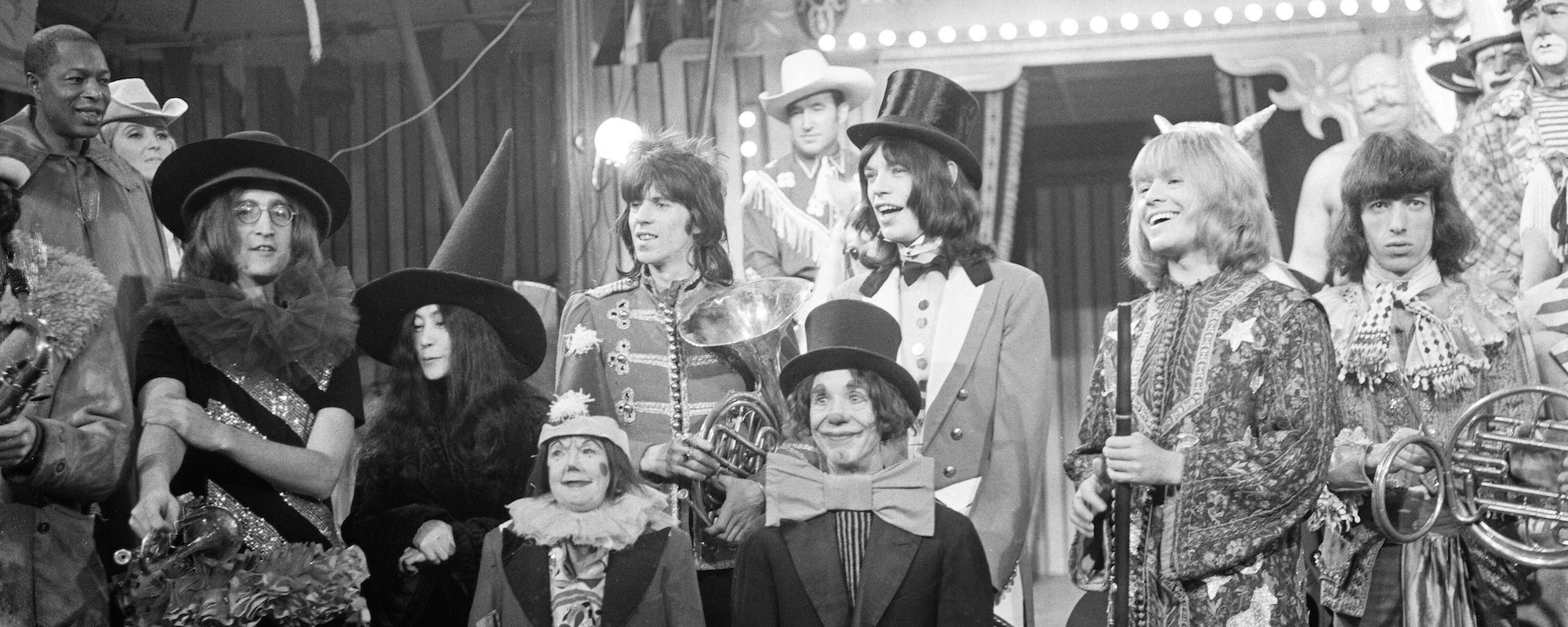It’s hard to pinpoint one favorite concert by The Who, from Woodstock to playing alongside members of The Beatles and other poignant moments within the band’s nearly 60-year history, but frontman Roger Daltrey remembered a few shows that left a deep impact on him throughout the decades.
Videos by American Songwriter
In a recent interview, Daltrey reminisced about some of his most memorable concerts with The Who from performing on The Rolling Stones’ television special in the late ’60s and Woodstock—which he admitted was a bit underwhelming—through the band’s concert in New York City following the 9-11 attacks
Here are three of The Who concerts that Daltrey highlighted and his memories from each.
[RELATED: The Meaning Behind The Who’s “Eminence Front”]
1. The Rolling Stones ‘Rock and Roll Circus’ (1968)
A year before Woodstock, The Who appeared on the Rolling Stones’ Rock and Roll Circus television special, which ran Dec. 11-12 in 1968.
“[It] was a fun one,” said Daltrey. “It was a weird day, really. We turned up in the morning at this studio near the area in London where we grew up. I remember thinking, ‘What is all this about? Jethro Tull is here, too?’”
Initially thought up by Mick Jagger as a way to promote the Rolling Stones’ then-new album, Beggars Banquet, the concept of the circus setting was imagined by Jagger, along with Who guitarist Pete Townshend, and Small Faces bassist Ronnie Lane. The special featured performances by The Rolling Stones, Taj Mahal, Marianne Faithfull, Jethro Tull, and John Lennon and Yoko Ono with their one-off supergroup, The Dirty Mac, featuring Eric Clapton, The Jimi Hendrix Experience’s Mitch Mitchell, and Keith Richards.
Being among artists like John Lennon and Yoko Ono and others during the taping, Daltrey remembered feeling disheartened after seeing Rolling Stones’ guitarist Brian Jones, who he had been friendly with at the time and died a year later.
“Brian was in a terrible state,” shared Daltrey. “He was one step forward and three steps backward. He was not good at all. I remember we were given a slot of 10 minutes, so we thought of doing the ‘A Quick One’ mini-opera: ‘Let’s do something different.’ We played it, and it was only one take.”
Another downside, added Daltrey, were the long gaps in time between performances. “I was stuck in a dressing room for hours, and I got bored on my own,” said Daltrey. “I found that I was really upset by Brian in that state, and it put a lot of things into perspective for my future. He died not long after. I wasn’t on the same drugs as everybody else at that time. I was dealing with being in a band with three complete addicts, and it wasn’t easy, I’ve got to tell you.”
Daltrey added, “I just got fed up with being around it. I didn’t want to be around it.”
2. Woodstock Music and Art Fair (1969)
A year after appearing on the Stones TV special, and a few months after releasing their iconic album, Tommy, The Who played a 22-song set at the Woodstock festival on August 16, 1969.
“We got along great with all of the musicians,” shared Daltrey. “It was party time, but it was uncomfortable. It was horrible, muddy, and shitty, and there wasn’t a good sound from the stage. My main memory of the bands was that was the first time I heard Creedence Clearwater Revival with John Fogerty. I was backstage, but boy, did they sound good. Fogerty was extraordinary. He’s a great guy. He still can sing like that.”
Woodstock, as an event, wasn’t overrated, said Daltrey. As a concert, it was more underwhelming.
“As an event, it deserves all the accolades it gets,” said Daltrey. “Woodstock was the first time the American government really had to sit up and start to take notice of this huge army of young people that were really against the war in Vietnam. You’ve got to remember the timing. For me, the stars of Woodstock were the audience and the bands were all crap.”
[RELATED: 5 Deep Cuts From The Who That You Should Be Listening To]
He added, “It was just a fantastic event and it made the powers that be, whoever they are—will we ever know—sit up and take notice. This was becoming a movement that was going to become unstoppable. Very quickly, within five or so years, that war was over. It still went on too long, but there it goes. Wars are quite stupid. They always end up with a deal.”
3. The Concert for New York City, with Paul McCartney (2001)
Just 39 days after the September 11 attacks in 2001, The Concert for New York City was the most emotional show Daltrey said he has ever played in his life.
“It was very difficult,” shared Daltrey. “Looking out at that audience of people who had a hellish time for weeks on end. There were children in the audience of some of the people that had been killed on 9-11. It was incredibly poignant.”
Daltrey added, “At the time, I actually didn’t think we played very well. It was only afterward that everybody was raving about The Who. I don’t know, I felt we just did what we do. We did discuss what we should play, but we couldn’t agree. Pete [Townshend] said, ‘Let’s just do what we do, which is play our songs.’ And we picked four. It was so strong.”
The benefit concert took place on October 20, 2001, at Madison Square Garden to help raise funds as well as honor the first responders from the New York City Police Department and the New York City Fire Department along with their families, those lost in the attacks and the individuals who were continuing to work in rescue and recovery weeks after at the World Trade Center site.
Organized by Paul McCartney, the concert also included performances by Jay-Z, Eric Clapton, David Bowie, Elton John, Bon Jovi, Mick Jagger and Keith Richards, Billy Joel, James Taylor, Melissa Etheridge, Destiny’s Child, and Goo Goo Dolls, among many other artists.
Photo: Samir Hussein/WireImage













Leave a Reply
Only members can comment. Become a member. Already a member? Log in.